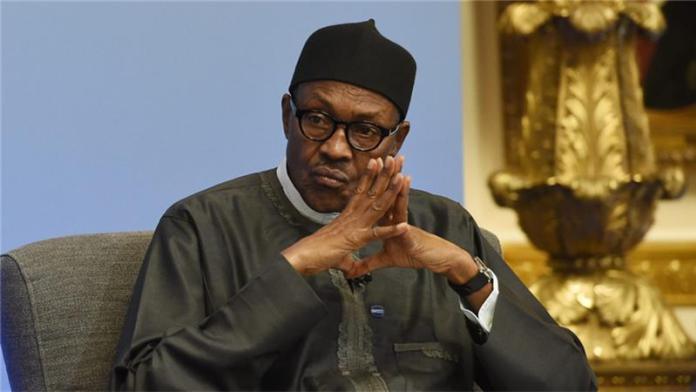By: Aisha Al-Amin Adam
INFOMEDIA – The Covid-19 pandemic has reduced educational institutions to abandoned nest. This is due to the initiative taken by many governments around the world to contain the spread of the virus.
The decision, however, has caused numerous educational disruptions, impacting millions of learners around the globe. According to UNESCO, these nationwide closures have impacted over 91% of the students population and several other countries implementing localized closure, have also impacted million additional learners.
In Nigeria, the government declared a nationwide closure of all tertiary, secondary and primary schools on March 19, 2020, which commenced on March 26, 2020. According to UNESCO, 39,440,016 leaners were affected.
At the time when the closure was declared, there were 12 cases of coronavirus. Presently, the confirmed cases of corona have reached 1095 with 208 patients discharged and 32 deaths as at 11:30pm 24th-April-2020.
It did not help that at the time the closure of schools was declared, the Academic Staff Union of Universities (ASUU) was deep into a two weeks warning strike which began on 9th March, 2020. The Federal Government took no action to address the problem. ASUU, upon expiration of the two-weeks warning strike embarked on an indefinite nationwide strike.
However, the Covid 19 made it impossible for all educational institutions including tertiary institutions to operate, so the issue of the ASUU strike continues to be ignored by the federal government. ASUU Chairman, University of Ibadan chapter, Professor Ayo Akinwole, lashed out at the President Buhari Government for stopping salaries of lecturers.
For students, UNESCO asserted that in accordance with the type of school types, an estimated number of 2,020,668 pupils in primary level, 14,475,416 in primary level, and 10,314,796 in secondary level. Going to school is the best public policy tool available to raise skills and the primary point of being in school is to raise a child’s ability and equip them with the skills needed to make it in the modern world. Therefore, a relative short period of missed school will have consequences on skill growth of a child.
In Nigeria, schools were in second term in the academic session of 2019/2020 when everything came to a standstill. The preprimary pupils, who are just starting out their formal education, are back to round zero. The primary pupils, whom should be furthering their knowledge on basic subjects, are stuck.
The closure of schools, colleges and universities not only interrupts the teaching for students around the world, it also coincides with a key assessment period and many exams have been postponed or canceled. For the secondary students, exams for main public qualifications such as WASSCE, NECO, A levels have been canceled. Other assessment for special certifications like IETSLs was also affected.
Read Also:
What is going to be done?
Nigeria is a country which has not completely descended into Information, Communication Technology (ICT) gadgets for processing of information. As a result, not everyone can be compatible with the suggested solutions of online teaching and learning by the Minister of Education, Malam Adamu Adamu, because it requires a computer or android phone, stable power supply, functional internet connection, good environment for learning and the ability to operate such infrastructures.
Furthermore, the availability of these infrastructures is limited to few individuals. In the high class, here is usually a parent who will be able to homeschool their child using available information resources at their disposal. This cannot be said for children in the lower class who do not have the kit to access the best online material. The parents of such children are also not able to teach their children something they do not understand.
The suggested solutions provided by the Federal Government are television and radio programs. This cannot be compared with the one on one advantage of online teaching and learning in which a child can be able to communicate with his teacher. This suggests a clear inequality in the system which affects the large number of children from disadvantaged backgrounds.
In tertiary level, Covid 19 has made a huge negative impact on an estimated number of 1,513,371 students and coupled with the ASUU strike factor, things are becoming worse. The timeline of this year’s university students who are about to be graduated may be severely affected. They have experienced interruptions in academic calendar. Also, it is very likely that they will be graduating at the beginning of a major global recession which may negatively impact on their searching for jobs after graduation.
Many of these students have worked so hard and strived to complete their study. However, things have taken a bad turn with the Covid 19 pandemic and the lockdown as a result of it. Even if a vaccine is made for the virus, students have to deal with the ASUU strike which hasn’t been resolved.
While other universities around the globe are moving their learning to online platform, students here are stuck. No learning, no work and locked at home. Plans are ruined and nothing is being done to change that.
There’s a saying: idle mind is the devils’ workshop. If nothing is done to give these students hope for a better tomorrow, instances will soon begin to support this saying.
Therefore, this is the best time for government to make adequate arrangements and project a better future for Nigerian students in the face of covid-19. Rather than asking universities to embark on an online teaching and learning, government should provide the infrastructures necessary to cater for this project so that even if there are pandemic in future (God forbid) students can learn from the comfort of their homes and teachers can use the facilities for the teaching.
Aisha Al-Amin Adam is a 400 level student of Department of Library and Information Sciences, Bayero University, Kano.



























